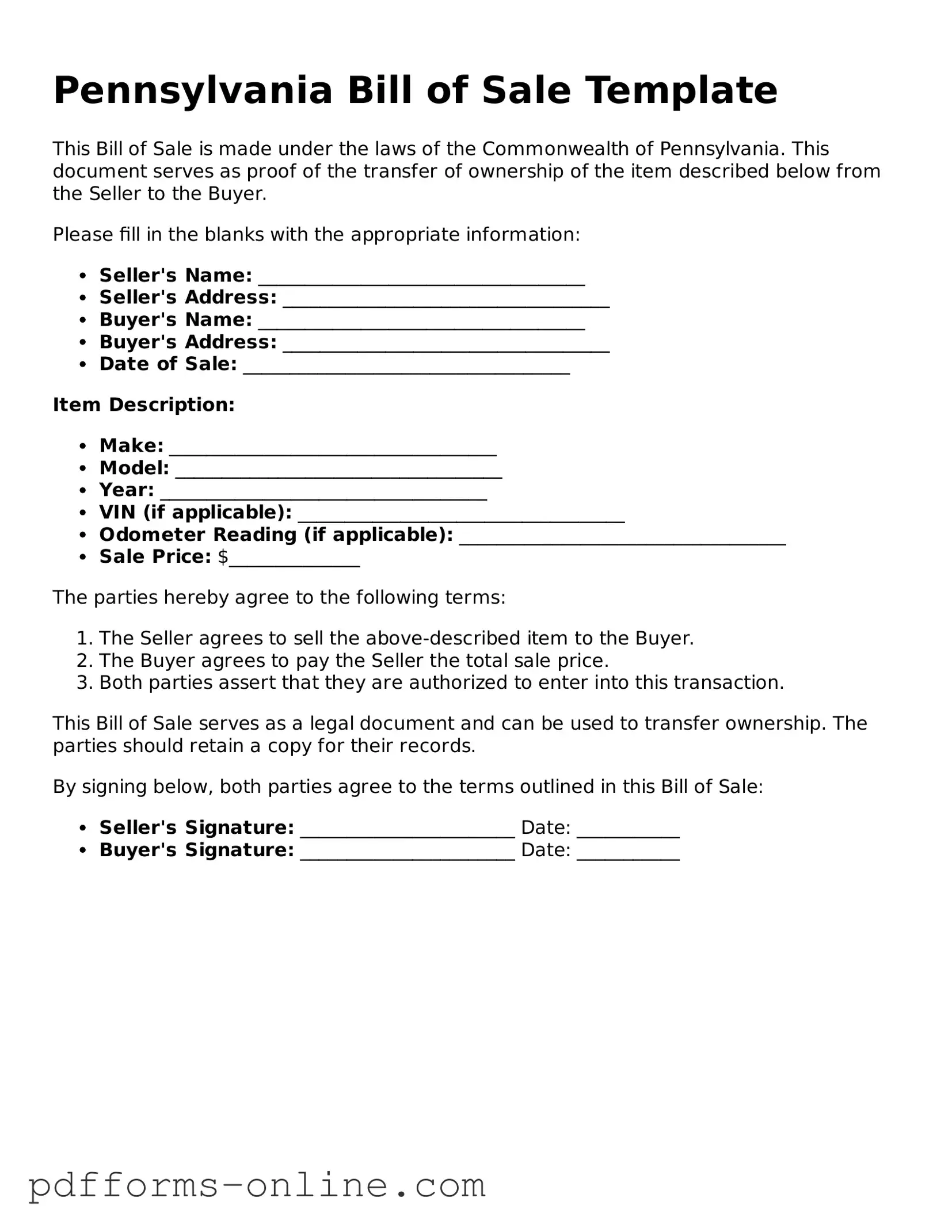The Pennsylvania Bill of Sale form shares similarities with the Vehicle Bill of Sale. Both documents serve as proof of transfer of ownership for a vehicle from one party to another. A Vehicle Bill of Sale typically includes details such as the vehicle's make, model, year, VIN, and the sale price. Like the general Bill of Sale, it protects both the buyer and seller by documenting the transaction and providing a record that can be referred to in case of disputes or legal issues.
Another document that resembles the Pennsylvania Bill of Sale is the Personal Property Bill of Sale. This form is used for the sale of personal items, such as furniture, electronics, or collectibles. It outlines the specifics of the transaction, including the description of the item, sale price, and the date of sale. Similar to the Bill of Sale, it serves to confirm the transfer of ownership and can be crucial for both parties if questions arise regarding the sale.
The Lease Agreement is another document that shares characteristics with the Bill of Sale. While it primarily focuses on the rental of property, it also includes terms that outline the responsibilities and rights of both the landlord and tenant. Like a Bill of Sale, a Lease Agreement is a binding contract that protects the interests of both parties. It ensures that each party understands their obligations, whether it be for payment, maintenance, or duration of the lease.
The Sales Agreement is also akin to the Pennsylvania Bill of Sale. This document is often used in larger transactions, such as real estate or business sales. It details the terms of the sale, including price, payment methods, and contingencies. Both the Sales Agreement and the Bill of Sale serve to formalize a transaction, providing legal protection and clarity for both buyer and seller.
A Purchase Agreement bears similarities to the Bill of Sale as well. This document outlines the terms of a purchase, including the item being sold, the purchase price, and payment terms. While a Bill of Sale is often simpler and used for more straightforward transactions, a Purchase Agreement can be more detailed and is commonly used for significant purchases. Both documents establish a clear understanding of the sale between parties.
Lastly, the Warranty Deed is similar in function to the Bill of Sale, particularly in real estate transactions. A Warranty Deed transfers ownership of property and guarantees that the seller has the right to sell it. Like the Bill of Sale, it provides a record of the transaction and protects the buyer's interests. Both documents ensure that ownership is transferred legally and that the buyer has recourse should any issues arise regarding the property title.
